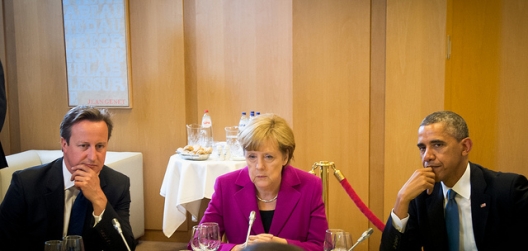 The West seems to have forgotten, though, that it did not come to be the architect of the global system in the 1940s and 1950s by avoiding risk and relying on conventional approaches. Quite the contrary, the individuals that built that foundation often took considerable political, professional, and strategic risks both at home and abroad. In fact, several of the obstacles that policymakers faced at the time – a disinterested public, resource constraints, and high stakes negotiations with friends and foes alike – resemble some of those we face today.
The West seems to have forgotten, though, that it did not come to be the architect of the global system in the 1940s and 1950s by avoiding risk and relying on conventional approaches. Quite the contrary, the individuals that built that foundation often took considerable political, professional, and strategic risks both at home and abroad. In fact, several of the obstacles that policymakers faced at the time – a disinterested public, resource constraints, and high stakes negotiations with friends and foes alike – resemble some of those we face today.
Take popular support: Similar to the retrenchment instincts present on both sides of the Atlantic today, American and European publics in the late 1940s were skeptical about the value of creating new international institutions that would require making long-term commitments to the economic prosperity and security of Europe. Those that worked to build a new liberal order, therefore, often put their political careers on the line and fought tirelessly to counter the skeptics, who were sometimes inside their own administration. This was particularly true for President Truman who had to persuade members of his own inner circle, the US Congress, and the American public about the value of creating the Marshall Plan in 1947….
[T]he West still benefits from a number of comparative advantages. It can build and run international coalitions like no other; its collective economic strength remains a powerful force in the global economy; its education system continues to attract students from around the globe; its economies have shown a remarkable capacity to repair themselves; and its values, while by no means admired by everyone, still serve as a beacon to many around the world. And for better or worse, the world still relies on the West to solve global problems and underwrite international security.
In order to adequately address today’s complex security environment, though, Europe and the US need to envision and promote change on the scale of what we witnessed at the end of World War II. Small-scale tactical shifts that avoid taking risks and fail to challenge the status quo simply will not suffice. We need leaders willing to buck the system, to get their hands dirty, and not only to think but to do the unthinkable. A bold, ambitious agenda that matches the enormity of today’s complex security challenges should include the following goals:
Break down the barriers that prevent international organizations from working together. The EU and NATO, for example, have struggled for years to find ways to establish institutional links. But age-old objections tied to the situation in Cyprus have prevented anything of real substance from taking root. With global challenges such as cyber- and energy security straddling the mandates of both institutions, the West can no longer afford to keep these two institutions on separate planes. The only way to develop innovative policies and tools to cope with a range of cross-cutting issues is to abolish longstanding barriers to cooperation. That should also include the barriers that exist between the public and private sectors, especially in the area of cybersecurity.
Double down on efforts to promote and finalize the Transatlantic Trade and Investment Partnership (TTIP). Leaders on both sides of the Atlantic clearly see value in establishing a new trade agreement that would provide much needed growth, position the two sides of the Atlantic to set global standards in a number of sectors, and send a clear message about the US and EU’s willingness to open markets. But their approach to date has been far too risk-averse and rooted in the hope that the merit of their arguments will ultimately win the day. Just as Truman launched an ambitious campaign to educate the American public about the Marshall Plan, Washington and Brussels need to launch their own engagement plan that would answer tough questions, directly engage stakeholders, and counter the anti-TTIP narrative dominating the debate. This project’s value stretches far beyond creating jobs and boosting exports but one would never know that from the way the two sides are promoting it….
This era of compounding complexity demands leadership, bold ideas, new models of doing business, and unbridled ambition on a scale we haven’t seen in several decades. There are countless reasons, though, why today’s leaders may not rise to the occasion. Our publics are weary, resources are scarce, and the relentless pace of social media makes it difficult to maintain strategic attention. The West has also experienced some sobering lessons in recent years about the limits of US and European power. But one of the lessons of the last seventy years is that when the West marshals the right mix of will and leadership, it does indeed have the ability shape the world order in unimaginable ways, even in less than perfect conditions. The real tragedy, therefore, would be not if the West tried and failed to take on such an ambitious agenda but if it did not try at all.
Julianne Smith is Senior Fellow and Director of the Strategy and Statecraft Program at the Center for a New American Security in Washington, DC.
Image: David Cameron, Angela Merkel, and Barack Obama, June 4, 2014 (photo: Office of the Prime Minister)
